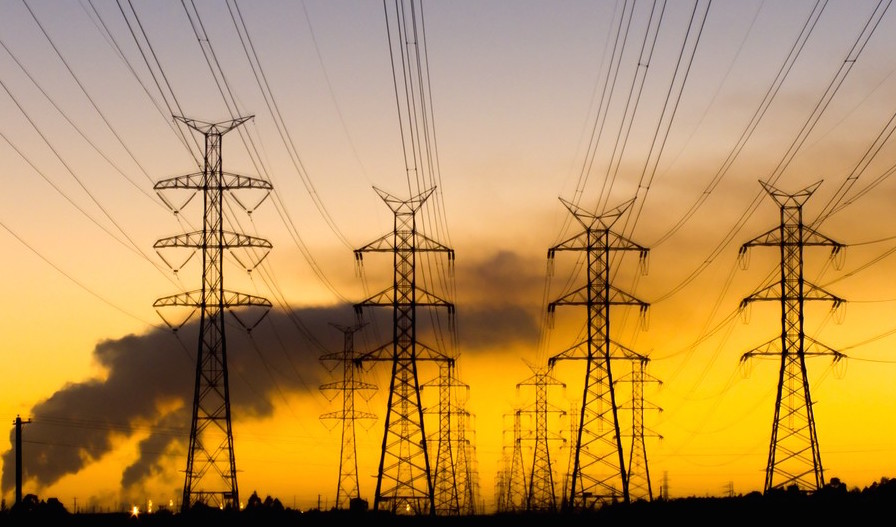- Raising Power Transmission Capacity
Documents obtained from the Transmission Company of Nigeria showed that the government-owned power company has within the last two years raised its transmission capacity by about 2,352.5 megawatts. Chineme Okafor, writes the implications of this feat to Nigeria’s power sector
Until recently, the Transmission Company of Nigeria (TCN) was frequently ridiculed as the feeblest link in Nigeria’s privatised electricity market by key stakeholders in the market.
From the power generation companies (Gencos) who complained bitterly about reported inability of the TCN to take all the power they produced, to the electricity distribution companies (Discos) who pointed at the TCN for most things that go wrong with their delivery of electricity services to Nigerians, the TCN became a common whipping dog for the sector and needed to adjust its operations and services quickly.
However, with the expiration of the management contract, the government had with Canadian power firm – Manitoba Hydro International, and subsequent appointment of a new head for TCN, Mr. Usman Mohammed, who was reportedly recruited from the African Development Bank (AfDB), the company somewhat turned the corners on its operation.
Although stakeholders doubted the claims of the TCN that it had begun to upgrade the national grid through a scheme – the Transmission Rehabilitation and Expansion Programme (TREP) – initiated to help it expand its wheeling capacity to 20,000MW by 2021, using funds from the federal budget; donor and multilateral funding agencies, THISDAY however obtained from it documents which suggested it had upgraded and installed transmission equipment that have raised its capacity by 2,352.5MW between 2017 and early 2019.
Grid expansion efforts
From the documents, it was gathered that in 2017, the TCN added 80 mega volt amp (MVA) to its existing 180MVA high-end transmission substation located in Benin South, and from which 64MW of electricity was added to what it can deliver to the Benin; another 100MVA was added to its sub-station in Alimosho part of Lagos to upgrade it to 230MVA and add 80MW to what it can supply to Eko Disco; 60MVA was equally added an existing 160MVA substation in Ajah to upgrade its capacity to 220MVA and supply to Eko Disco by 48MW. Also, in Ejigbo, it said it would complete the addition of 100MVA to an 130MVA to raise the capacity of the substation to 230MVA and supply to Ikeja Disco by 32MW.
Going further, the documents disclosed that a 60MVA transformer capacity was added to an existing 37.5MVA capacity substation in Funtua to raise its overall capacity to 97.5MVA and supply to Kano Disco by 48MW; 40MVA added to a 100MVA substation in Zaria to raise capacity to 140MVA and supply to Kaduna Disco by 32MW; 60MVA to a 45MVA substation in Oji River to upgrade its capacity to 105MVA and supply to Enugu Disco by 48MW; 40MVA to a 28MVA substation in Mayo Belwa to raise its capacity to 68MVA and supply to Yola Disco by 32MW; as well as a new 120MVA installed at Kukwaba area of Abuja to add 96MW to the amount of electricity it can supply to Abuja Disco.
Also, in the Afam area of Rivers, it reportedly installed a 150MVA transformer to add 120MW of electricity to its volume to Port Harcourt Disco; 60MVA to upgrade Hadejia sub-station to 82.5MVA and supply to Kaduna Disco; 40MVA mobile transformer in Damboa part of Bornu; 60MVA to upgrade Keffi substation to 90MVA and improve supply to Abuja Disco by 48MW; 120MVA installed in Katampe part of Abuja to raise supply to the Disco by 80MW; 60MVA added to raise the capacity of Uyo substation to 180MVA as well as supplies to Port Harcourt Disco; 40MVA in Umuahia to raise existing capacity to 120MVA and supply by 96MW; 60MVA added to Aba to raise supply by 48MW; as well as 100MVA added to Apo in Abuja to raise supply to the Disco by 80MW.
Continuing in Gombe, the TCN also said it added 30MVA, as well as 60MVA in Bauchi. In Bida area of Niger, it said it added 60MVA to raise supply to Abuja Disco by 48MW; while in Suleja and Abeokuta, it added 120MVA and 60MVA to raise supply by 96MW respectively.
Again, it revealed that it upgraded the capacity of the Molai to 210MVA and supply to Yola Disco by 120MW; Illashe to 130MVA and 24MW; Awka to 60MVA and 16.5MW; while Mando to 690MVA and 552MW; just as a greenfield transmission substation was built at New Kano with a capacity of 420MVA and additional 336MW for Kano Disco to take to consumers under its network.

 Forex3 weeks ago
Forex3 weeks ago
 Naira3 weeks ago
Naira3 weeks ago
 Billionaire Watch2 weeks ago
Billionaire Watch2 weeks ago


 Naira3 weeks ago
Naira3 weeks ago




 Naira2 weeks ago
Naira2 weeks ago




 Naira1 week ago
Naira1 week ago




 Naira4 weeks ago
Naira4 weeks ago
 Banking Sector4 weeks ago
Banking Sector4 weeks ago




















